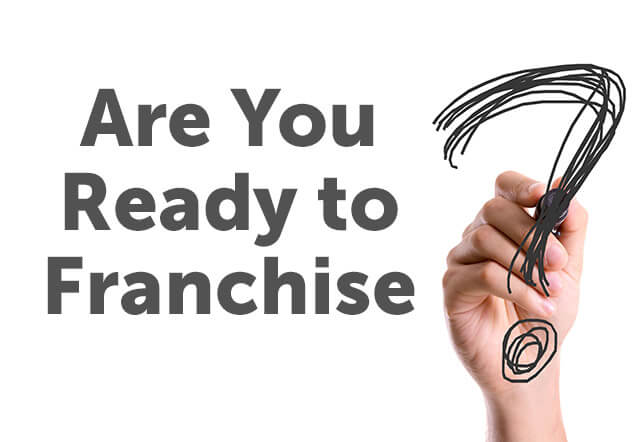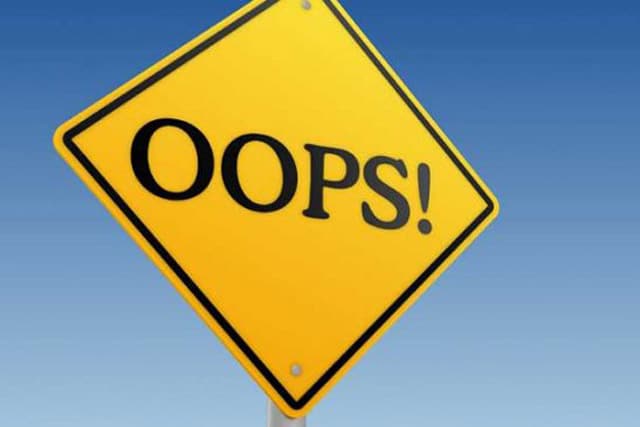Are You Ready to Franchise Your Business? Threshold Analysis Part One
By Michael Seid, Managing Director, MSA Worldwide
Threshold Analysis: The minimum benchmarks for franchising a business
When you begin the process of becoming a franchisor, recognize that while you may already have a successful operating business with a long history and experienced management team, you are now developing a new business – a franchise system.
- As a franchisor, you will license your brand and operating system to your franchisees, provide them initial and continuing support, manage and evolve your brand to keep the franchise system competitive and sustainable, and continue to grow the number of franchised locations.
- Your goal is to ensure that your franchise system has the ability to consistently and sustainably replicate your brand standards from location to location.
The design, development, and management of any downstream distribution strategy requires skill and creativity. With franchising, there’s an added dimension of complexity over other expansion strategies:
- As a franchisor, you’ll be in the business of setting and enforcing your franchise system’s Brand Standards. However, your franchisees will execute the delivery system at the local level, and your franchisees will independently control the day-to-day management and operation of their businesses.
- The success of every franchise system rests on the ability of the franchisor to maintain a beneficial relationship with its franchisees.
Establishing and enforcing brand standards
Managing a franchise system requires more than just having the expertise required to operate the underlying business being licensed. Franchisors also assume the responsibility of competitively innovating and evolving the underlying concept, while growing their franchise system in a sustainable way.
When franchisors establish and enforce Brand Standards, they do so for the local consumers of the brand’s products and services – and equally for the protection of all of the system’s franchisees, the system’s suppliers, and the protection of the franchisor’s intellectual property.
- This necessitates that a franchisor understands both their brand and their core competencies.
- It also requires that the franchisor is willing and able to ethically manage the franchise system; anticipate events and market opportunities; organize activities; and effectively communicate the system’s direction throughout the channel.
In directing the course of a branded system that is executed by others, franchisors need to be sensitive to the needs of the overall system. How franchisors manage their responsibilities impacts the underlying operational and financial performance of each of their franchisees. Franchisors select the prospective franchisees they allow to join the system, and franchisors are the ones principally but not exclusively responsible for providing their franchisees with the tools required by them to execute consistently to Brand Standards.
Understand the dynamics of franchising
Before starting your examination of whether or not you can successfully franchise your business, you need to first understand the dynamics of franchising.
Take the time to understand how other franchisors manage their systems; this will give you a foundation upon which to make important business judgments. It’s essential that you read articles and books focused on the business aspects of franchising, and obtain a basic understanding of franchise law. Once those preliminaries are in place, when coupled with a well-structured design and development plan, competent management can execute a successful franchise strategy able to meet their goals and expectations – if the concept they are franchising is franchisable.
Are you ready to franchise your business?
From a strict legal viewpoint, there really is no issue of franchisability:
- There is no requirement under the law that the franchisor has ever opened and operated the type of location that is being franchised.
- Even if the franchisor has operated prototype locations, there are no legal requirements on the number of locations they have operated or whether the prototypes have been open for any minimum period of time.
- There is not even a requirement that any of the prototype locations have ever been profitable.
- All the law requires is a franchise agreement and a disclosure document.
But meeting the legal requirements is insufficient to actually be a franchisor.
It’s always surprising when even large, well-established, international companies begin the franchising process at the end – development of their legal agreements. Presented with a lengthy questionnaire by their legal counsel, they are asked to provide information necessary to prepare franchise agreements and disclosure documents. The problem, though, is that those questions then become their only guide to how their franchise system should be structured.
- Without the benefit of evaluating business alternatives, conducting research, and fully exploring strategic considerations, a franchise system ends up operating as merely a legal vehicle for expansion rather than what it truly should be, a business structure for expansion.
Experienced franchisors understand that while the law is an element of franchising, it is a minor influence on how franchisors manage their business, make decisions on its direction, and interact with their franchisees. Bottom line — almost anything can be franchised, and unfortunately, many companies that should never offer franchises frequently do.
A Threshold Analysis is the essential first step
Conducting a proper Threshold Analysis before making the decision to develop any franchise system is the prudent first business step. Your Threshold Analysis (also referred to as a Feasibility Analysis) should occur before you invest in the design of your franchise system; before you have your legal counsel prepare the necessary disclosure documents and legal agreements; and before you invest in developing your franchise recruitment material.
But before you invest in a Threshold Analysis to determine if you should franchise your business, here is a simple test to first determine if your business is not ready to franchise. If:
- The business you want to franchise is only a concept and has not yet commenced operations;
- You have an operating location but it only has limited operating history;
- Your operating locations, regardless of how long they have been open, have not consistently been profitable at the unit level; and
- You have not consistently achieved a reasonable return on investment at the unit level;
- …then you are not ready to franchise your business.
The minimum benchmarks for franchising
The minimum benchmarks for whether you are ready to even consider franchising are:
- that you have operated your business for a sufficient period of time to fully understand its dynamics;
- that the business is profitable; and,
- that its profitability is sufficient to provide a return on investment.
Your franchisees will rely on your experience in operating the business, and if that experience is negligible, all that you are really offering potential franchisees is a “theoretic opportunity” and the opportunity to be your guinea pigs. When the system is not truly ready for franchise expansion, the risk of failure for both the franchisor and its future franchisees is quite high.
In The Threshold Analysis Part Two, we examine in depth how to identify the criteria to use in determining your franchisability, and describe the major Threshold Analysis “buckets” MSA Worldwide typically uses for its feasibility analyses.
Do you have questions about franchising your business?
MSA Worldwide provides expert guidance on building a successful and sustainable franchise business. Contact us today for a complimentary consultation.







